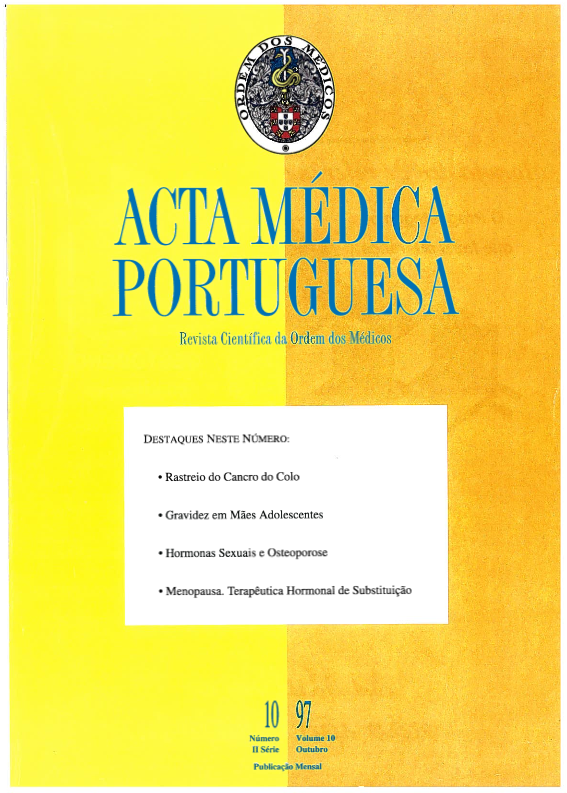Hormone replacement therapy and cancer of the breast. 1. Does replacement therapy increase the risk of cancer of the breast?.
DOI:
https://doi.org/10.20344/amp.2473Abstract
It has been extensively demonstrated that hormonal replacement therapy (HRT) constitutes an effective treatment of menopausal symptoms. There is also substantial epidemiological evidence suggesting that this treatment protects women against cardiovascular disease and osteoporosis. The possible increase in breast cancer risk appears as its principal disadvantage and is often invoked as the reason why both doctors and patients decline this therapy. In this paper we review the current knowledge on HRT and breast cancer risk. A computerised bibliographical search (MEDLINE) of literature in the English language published in the last 15 years was conducted, followed by a manual search of references. We focused our attention on four main questions: 1) Does HRT increase the risk of breast cancer? 2) Are different doses and drugs associated with different risks? 3) What effect on risk have the association of a progestin does? 4) Does HRT increase the risk of breast cancer in women with major risk factors for the disease? Overall, epidemiological studies suggest that women who have used HRT before have a slightly higher risk of breast cancer than those who have never used it, in most studies not exceeding 10%. The use of HRT for less than 5 years does not seem to be associated with increased risk, while some studies have shown relative risks in the order of 1.20-1.30 with therapies exceeding 10-15 years in duration. Different doses of conjugated equine estrogens do not seem to be associated with different risks of breast cancer. Data on the risk of other estrogen preparations is scarce and far from conclusive, but the majority of studies suggest a similar risk to that of conjugated estrogens. Evidence on opposed HRT is also scarce and contradictory. A substantial body of evidence exists to suggest that HRT in women with benign breast disease does not increase the risk of breast cancer. Data on HRT in women with a family history of breast cancer is inconclusive; some studies have found an increased risk with this therapy, while others have found no difference. It has to be taken into account that current knowledge on this subject is based on observational studies subject to numerous bias, evaluating dissimilar populations and mostly conducted with currently less favoured HRT regimens, such as unopposed conjugated estrogens. Studies on the currently prevailing HRT regimens are urgently needed.Downloads
Downloads
How to Cite
Issue
Section
License
All the articles published in the AMP are open access and comply with the requirements of funding agencies or academic institutions. The AMP is governed by the terms of the Creative Commons ‘Attribution – Non-Commercial Use - (CC-BY-NC)’ license, regarding the use by third parties.
It is the author’s responsibility to obtain approval for the reproduction of figures, tables, etc. from other publications.
Upon acceptance of an article for publication, the authors will be asked to complete the ICMJE “Copyright Liability and Copyright Sharing Statement “(http://www.actamedicaportuguesa.com/info/AMP-NormasPublicacao.pdf) and the “Declaration of Potential Conflicts of Interest” (http:// www.icmje.org/conflicts-of-interest). An e-mail will be sent to the corresponding author to acknowledge receipt of the manuscript.
After publication, the authors are authorised to make their articles available in repositories of their institutions of origin, as long as they always mention where they were published and according to the Creative Commons license.









